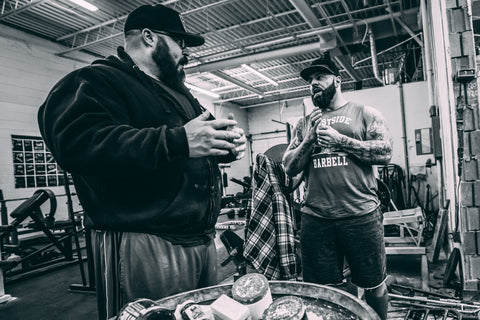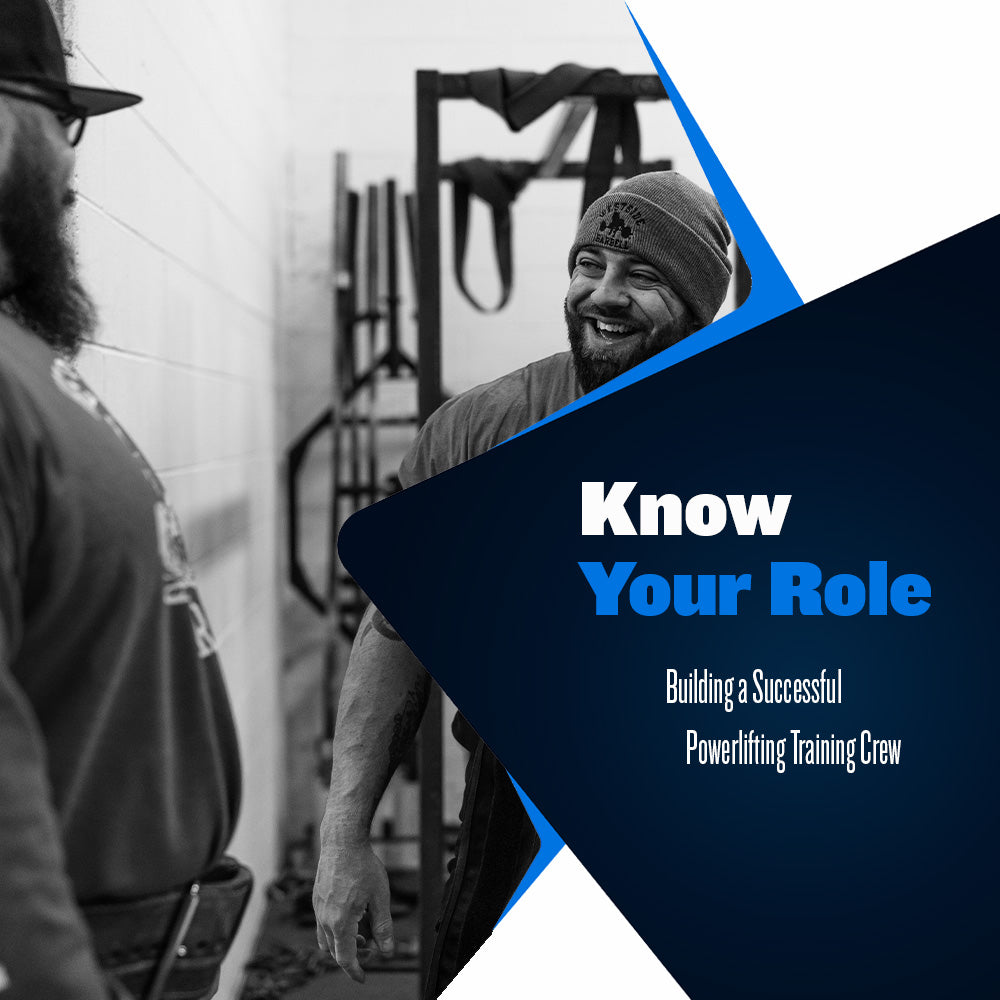Know Your Role

Powerlifting is an individual sport on the platform but a team sport in the gym. To be maximally successful, you must train with a group of like-minded individuals. This sport requires an athlete to place their physical health at risk while lifting maximal weights, so for that reason alone, you need a group if you want to mitigate risk while training at high intensities.
However, the benefits of training with a group go far beyond having a few people on hand to spot you. Building a dedicated, reliable training group provides all members of the group with benefits. Each lifter has 2-3 sets of eyes on their lifts. Each lifter has reliable spotters who know their lifting style. Each lifter has someone to wrap their knees and handle them at meets; the list goes on.
Choosing to be a lone wolf in this sport will ultimately limit the amount of success you will have, especially for those new to the sport. It doesn't matter if you are the best lifter in the world, the smartest strength coach in the world, or the biggest baddest motherfucker in the world; we all need good training partners.
What makes a training group "good'? In my opinion, a good training group relies on one thing: everyone knowing their role. As long as everyone plays their part, you can guarantee all group members will consistently improve.
So, what are the roles of a training group? An ideal way to think about it is like a pack of sled dogs.
Lead Dogs
The lead dogs will be the group's strongest and most experienced members. To be a lead dog, you must possess both attributes. It does a training group no good to have a big dummy or a skinny geek running the show. You need a lifter who walks the walk and talks the talk.
The lead dogs set the tone for the training group. They often choose the workout (while considering group opinion) and will be the first to speak up to educate or correct a lesser experienced lifter.
The lead dogs are ultimately responsible for the overall success of the group. The lead dogs shoulder the blame if the group lacks motivation, dedication, or education. If you consider yourself a lead dog, you should be able to provide programming and education to your lifters. They rely on your experience, and you rely on their help.
The ultimate goal is for the lead dogs to reach maximum success while training and educating the members of the group who helped them get there. A rising tide raises all boats.
Team Dogs
These are the most important members of the training group. The lead dogs aren't going anywhere without dedicated and capable team dogs. Team dogs are the members of the group who have a few years of experience under their belts and have fully dedicated themselves to the training process.
As a team dog, your role is to assist the lead dogs in reaching their goals while educating yourself and benefitting from the knowledge and programming the lead dogs provide. Your job is to learn your training partners' habits, movement patterns, and mindset so you can give accurate feedback and meaningful motivation to take your crew to the next level.
The most critical role team dogs play is at meets. These guys will be loading warm-up weights, wrapping knees, and handing out bench attempts. These things will make or break a lead dog's career. Without reliable team dogs, a training crew is damn near dead in the water.
Dogs in Training
These are the individuals newest to the training crew. They place the most significant burden on the crew, needing frequent correction and instruction by both the team and lead dogs. The role of dogs in training is to earn respect and prove they deserve to be involved with the group.
This is not to say you use them as a physical or verbal punching bag, but you should expect the less experienced members of the group to act the part.
Today, many feel everyone can participate and give opinions regardless of knowledge or experience. The problem with that mentality is it is weak as fuck. It is important to gain credibility through action; you don't get credit for waking up with a positive attitude and breathing air.
Fortunately, earning respect is not difficult for individuals new to a training group. Show up on time, dedicate yourself, and help load and unload weights. Not too much to ask for free education and a group of personal coaches, is it?
Be Real
The most important aspect of any training crew is credibility. You need to have the right people in the right roles within your training group. Today, many people want to skip the steps it takes to master strength training so they can become an online influencer showing you the new movement of the week.
You can load up your IG bio with all the achievements you want, experience is easy to spot, and the success of your group will show whether or not you have the right people in the right roles. As a less experienced lifter, don't fall for the motivational talks and posturing. Make sure those who lead you are about the business.
As in life, so in lifting, if you want to be successful, you need to know your role and play your part.





